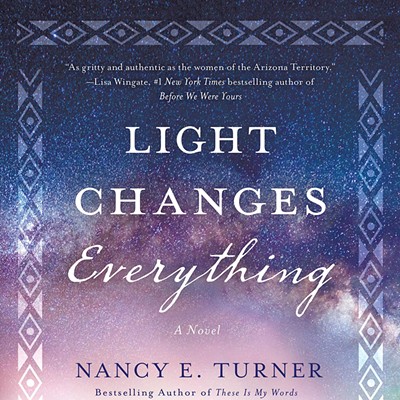What's captured? The fierce, futile struggles of people wounded by life, chance, each other. As with any great book, there are humorous as well as entertaining moments. Overall, however, Season Tickets is a profound work of art that's unafraid to fully explore what it means to be mortal.
The opening short story, "Okies," is a (Raymond) Carveresque portrait of an impoverished son and his father, struggling to find their way after the mother dies of tuberculosis. Flashbacks allow the son to recall her impish, occasionally transgressive nature, and her insistence on education as an escape from poverty. She holds him to an impossible promise:
"John, I want to tell you something. Most everything changes. People die, even stones wear away over time, but your father is one who don't change." She thumped the boy's head with the tip of her finger. "He can't think for himself. If somebody ain't around to push him in the right direction, he'll keep going until he falls off the edge of the earth. Promise me you'll not grow up to be like your father."
Indeed, her pride and dignity inform her boy's view of the harsh world that surrounds him, even as his father's mind slowly unravels, leaving them destitute. Desperation inevitably leads to violence, the central and often final lesson of life. And while the other two stories in Season Tickets are masterful, "Okies" is the one that will trouble your mind.
Gilmore's poems, on the other hand, rival the clean, muscular lines of former poet laureate Billy Collins. Ultimately, the Tucsonan's work here is superior, since he never flinches from tackling uncomfortable material. For instance, there's "Group Shower," in which the terrors of gym class become a metaphor for the construction of masculinity, for the way "each boy is born into a brotherhood of fear." "Miss Miller" zeroes in on the speaker's memories of his childhood crush on a third-grade teacher. Once married, she remains the center of his affections, until rushing to school, gift in hand, the boy realizes his insignificance. The bitter aftertaste of heartbreak returns more than 60 years later, when the speaker visits her: "She's in her nineties now, almost/blind. I paid my respects and asked about/her health, afraid to ask what I really/wanted to know." Meanwhile, "Christmas '51" offers more than any sane reader might want to know, as the speaker--again a young boy--secretly witnesses his father masturbate to the holiday jingle "Oh Come All Ye Faithful." It's an unsettling, darkly funny account of a family thrown into sexual turmoil by a visiting aunt who loves, of all things, bowling.
In addition to his powerful narrative poems, Gilmore excels at what I like to call the "rhetorical poem," in which the poet takes a small idea and burnishes it with a clever, illuminating twist. "The Morning After," a meditation on sin, shame and regret, is short enough to include here:
Why did I drink it--a full pint of Old Crow
on top of a plate full of fettuccine?
And that motel with the moldy shower curtain.
So cheap.
So disgusting.
And the woman's--God, I can't even remember
her name--her chipped tooth, her insistence
on saying "me and him."
So sleazy.
So unsophisticated. How could anyone with sensitivity and conscience
be expected to perform under those conditions?
But the collection's best moments are when Gilmore ponders death and its poignant omens, its cruel certainty, its meager rewards. One such moment comes from "Sharing Stars," in which two young men slug each other in the head so as to achieve a "high." Years later, the speaker has outlived his best friend and boxing companion, longing for one last opportunity to throw a sucker punch.
In fact, a sucker punch is a pretty apt description of Season Tickets: It arrives out of nowhere, lands a perfect blow to the head and heart and leaves the reader to stumble around the ring, wounded by the weight of Dan Gilmore's poised artistry. If only more debut collections achieved the same results.








